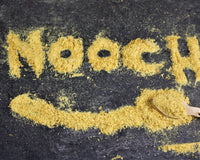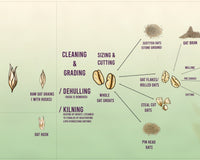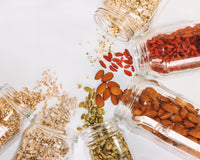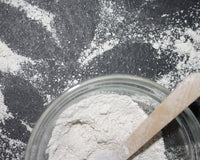The clocks are going forward this weekend and that means one less hour of precious sleep!
We’re sure you’ve heard before about how important it is to get a good night’s kip. Sleep is an essential function that allows your mind and body to recharge, as well as keeping yourself healthy and warding off diseases. However, as many of us know, sleeping well isn’t always an easy task.
Did you know that certain foods can also aid you in getting a restful night’s sleep? There are a variety of chemicals, enzymes, amino acids and other nutrients that can help in falling and staying asleep, and fortunately, you can find a lot of them in foods and drinks.
We want to make sure you’re getting the best sleep possible and have compiled a handy list of sleep inducing foods (plus one drink). So, if you’ve been having trouble falling asleep or staying asleep, why not give these a try?
Almonds
Almonds are not only a nutritious and healthy snack, but it’s also claimed they may help in boosting sleep quality as well. This is because almonds contain the hormone melatonin, which regulates your internal clock and signals your body to prepare for sleep.
Almonds are also a great source of magnesium. Consuming an adequate amount of magnesium may improve sleep quality, especially for anyone suffering with insomnia. Magnesium’s role in promoting sleep is considered to be related to its ability to reduce inflammation. In addition, magnesium can assist in lowering levels of the stress hormone cortisol, which is known to disturb your slumber.
For more health benefits of almonds, have a look at our previous article Are Almonds Good For You?
Oats
You may think of oats as more of a breakfast food, but you might want to try eating a bowl of porridge after dark if you want to catch those precious ZZZZZs.
The grains present in oats trigger insulin production much like whole-grain bread, raise your blood sugar naturally which makes you feel drowsy. Oats are also rich in both melatonin and the amino acid tryptophan that helps to produce melatonin, which helps our brain send signals to the rest of our body that it’s time to relax and get some rest.
Kiwi
Kiwis are a low calorie but extremely nutritious fruit that could also aid you in sleeping better.
The sleep-promoting effects of kiwis are sometimes usually attributed to serotonin. Serotonin is a brain chemical that helps regulate your sleep cycle. It’s been proposed that the anti-inflammatory antioxidants in kiwis, such as vitamin C and carotenoids, may also be partially responsible for their sleep-inducing impact.
White Rice
White rice is a rich source of carbohydrates. It’s high carb content along with its lack of fibre, both contribute to white rice having a large glycaemic index. It’s been suggested that eating foods with a high GI, like white rice, approximately one hour before bed may help in improving sleep quality.
Some researchers seem to believe this is due to the large amount of insulin released after eating a high GI meal. Insulin drives the amino acid, Tryptophan, which helps activate drowsiness, into the brain.
Chamomile Tea
Okay, so it’s not technically a food but we’re still including it on this list!
Chamomile tea is widely known as one of the best drinks to help you get your forty winks. But did you know, it doesn’t even contain any tea? It’s actually more of an herbal infusion made from the dried flowers of the chamomile plant.
Chamomile tea also contains antioxidants which binds to receptors in the brain that encourage sleepiness and reduce insomnia. Just make sure to drink your cup of chamomile tea around 45 minutes before going to bed so your body has ample time to metabolise the tea.
Soya
Soya has a wide range of health benefits, and one of them may be aiding you in a good night’s kip! The products produced from soya, such as soya milk, tofu, and tempeh contain good amounts of tryptophan, the substance which can help our bodies synthesise melatonin and serotonin.
Another way soya may also benefit your sleep pattern is due to its isoflavone content. Isoflavones are believed to somewhat mimic the hormone oestrogen. Oestrogen can affect the brain via the same neurotransmitters that are involved in sleep regulation.
Why not check our latest soya article Why Soya is a Great Meat Substitute
Figs
Figs are an excellent source of magnesium, potassium, calcium and iron, making them a powerful aid for sleep. All these minerals can assist with muscle contraction along with blood flow, which are both vital for falling asleep. Figs also contain high amounts of fibre, keeping you full through the night and preventing any hunger pangs or midnight cravings that could disturb your slumber.
Walnuts
Another nut featuring on this sleep inducing food list is the small yet mighty walnut.
Some researchers have claimed that eating walnuts improves sleep quality, as they’re one of the best food sources of melatonin. They are made up of many fatty acids that may also contribute to better sleep. Walnuts provide alpha-linolenic acid (ALA), an omega-3 fatty acid that’s converted to DHA in the body. DHA may increase your bodies serotonin production.
So, if you’re finding it difficult to nod off, eating a handful of walnuts before bed might just help!






